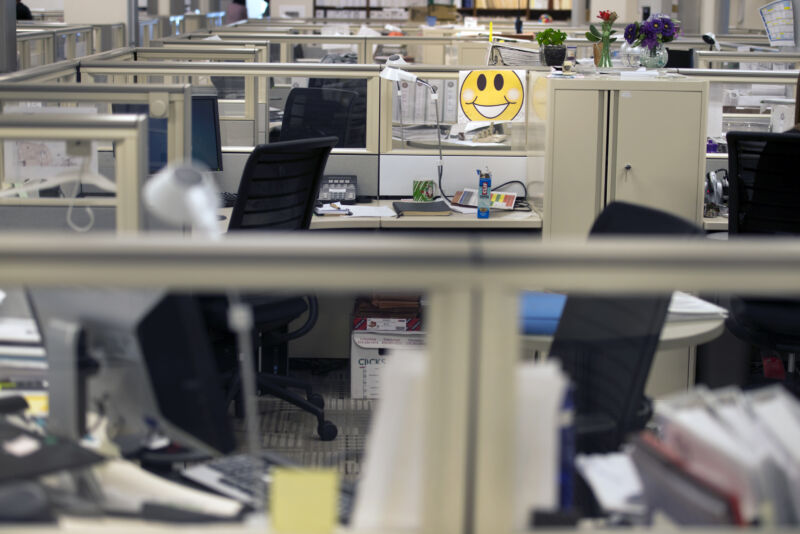-
 chevron_right
chevron_right
RTO doesn’t improve company value, but does make employees miserable: Study
news.movim.eu / ArsTechnica · Friday, 23 February - 23:05 · 3 visibility

Enlarge / Empty cubicles
For some, having to work from home during the COVID-19 pandemic was stressful. Parents balanced job duties while caring for children. Some struggled to set up a home office and adjust to new tools, like video conferencing. Lonely workdays at home added to social isolation. The line between work and life blurred.
For others, working from home was a boon—comfort, convenience, flexibility, no commuting or rush-hour traffic, no office-environment distractions. When the acute aspects of the pandemic receded, some who at first struggled began to settle into a work-from-home (WFH) groove and appreciated the newfound flexibility.
Then, bosses began calling their employees back to the office. Many made the argument that the return-to-office (RTO) policies and mandates were better for their companies; workers are more productive at the office, and face-to-face interactions promote collaboration, many suggested. But there's little data to support that argument. Pandemic-era productivity is tricky to interpret, given that the crisis disrupted every aspect of life. Research from before the pandemic generally suggested remote work improves worker performance—though it often included workers who volunteered to WFH, potentially biasing the finding.
